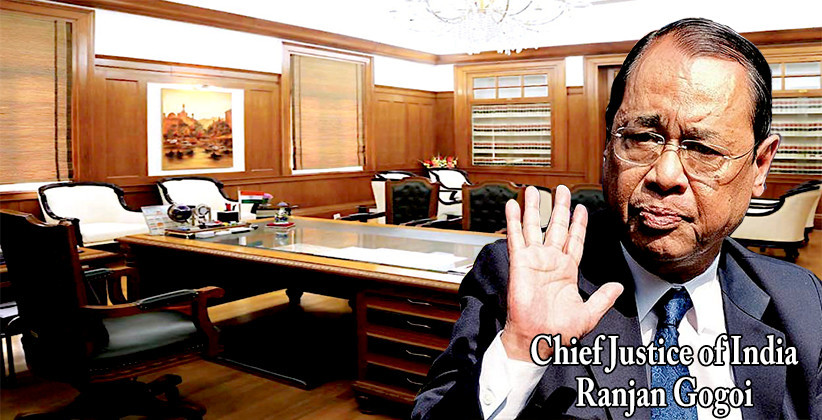In a significant judgment, the Supreme Court today (November 13, 2019) held that the office of Chief Justice of India is a public authority and thus comes under the purview of Right to Information Act, 2005.
The five-judge Constitution Bench headed by Chief Justice of India Ranjan Gogoi and comprising of Justices N.V. Ramana, D.Y. Chandrachud, Deepak Gupta and Sanjiv Khanna upheld the 2010 judgment of the Delhi High Court which had held that RTI Act was applicable to CJI's office.
The Bench had on April 4, 2019, reserved its verdict on the appeals filed in 2010 by the Supreme Court secretary general and its central public information officer against the Delhi High Court and the Central Information Commission's (CIC's) orders.
The hearing was wrapped by the court holding that nobody wants a "system of opaqueness", but the judiciary cannot be destroyed in the name of transparency.
"Nobody wants to remain in the state of darkness or keep anybody in the state of darkness," the court said adding that "The question is drawing a line. In the name of transparency, you can't destroy the institution."
The Delhi High Court in its verdict passed on January 10, 2019, had held that the office of the CJI comes within the ambit of the Right to Information (RTI) law, saying judicial independence was not a judge's privilege, but a responsibility cast upon him.
Three Judge Bench of the Delhi High Court comprising the then Chief Justice A.P. Shah, Justice Vikramjeet Sen and Justice S. Muralidhar through its judgment had upheld the single Bench judgment that held that the CJI has statutory duty to furnish information sought by citizens regarding the functioning and administration of the Supreme Court. Accordingly, the single bench had directed the Supreme Court CPIO to provide the information requested by Subhash Chandra Agarwal for supply of information concerning declaration of personal assets by the Judges of the Supreme Court.
However, the Supreme Court opposed the decision of the Delhi High Court contending that bringing the CJI's office within the RTI Act would "hamper" judicial independence.
The appeals were referred to the Constitution Bench in August 2016 by a three judge bench headed by Justice Ranjan Gogoi.







